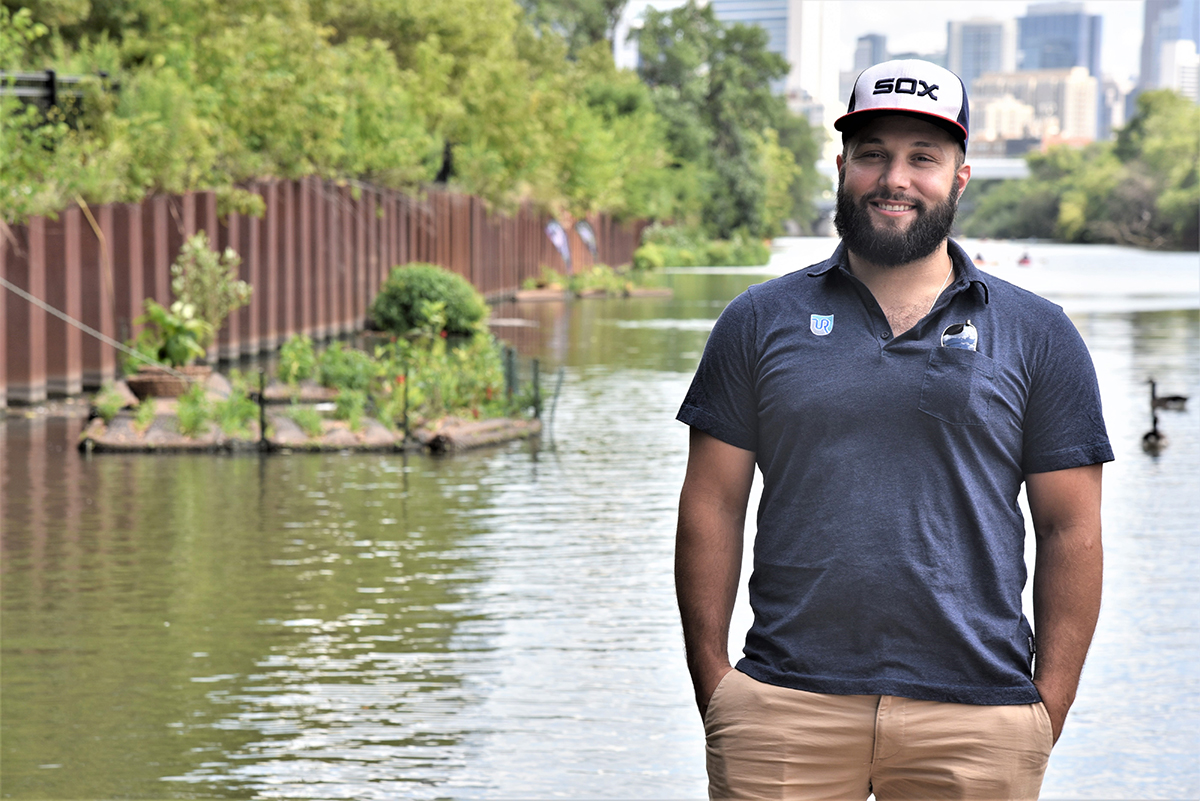
George Brigandi (MBA ‘18) serves as marketing director of Urban Rivers, a nonprofit organization that hopes to improve the Chicago River by 2020.
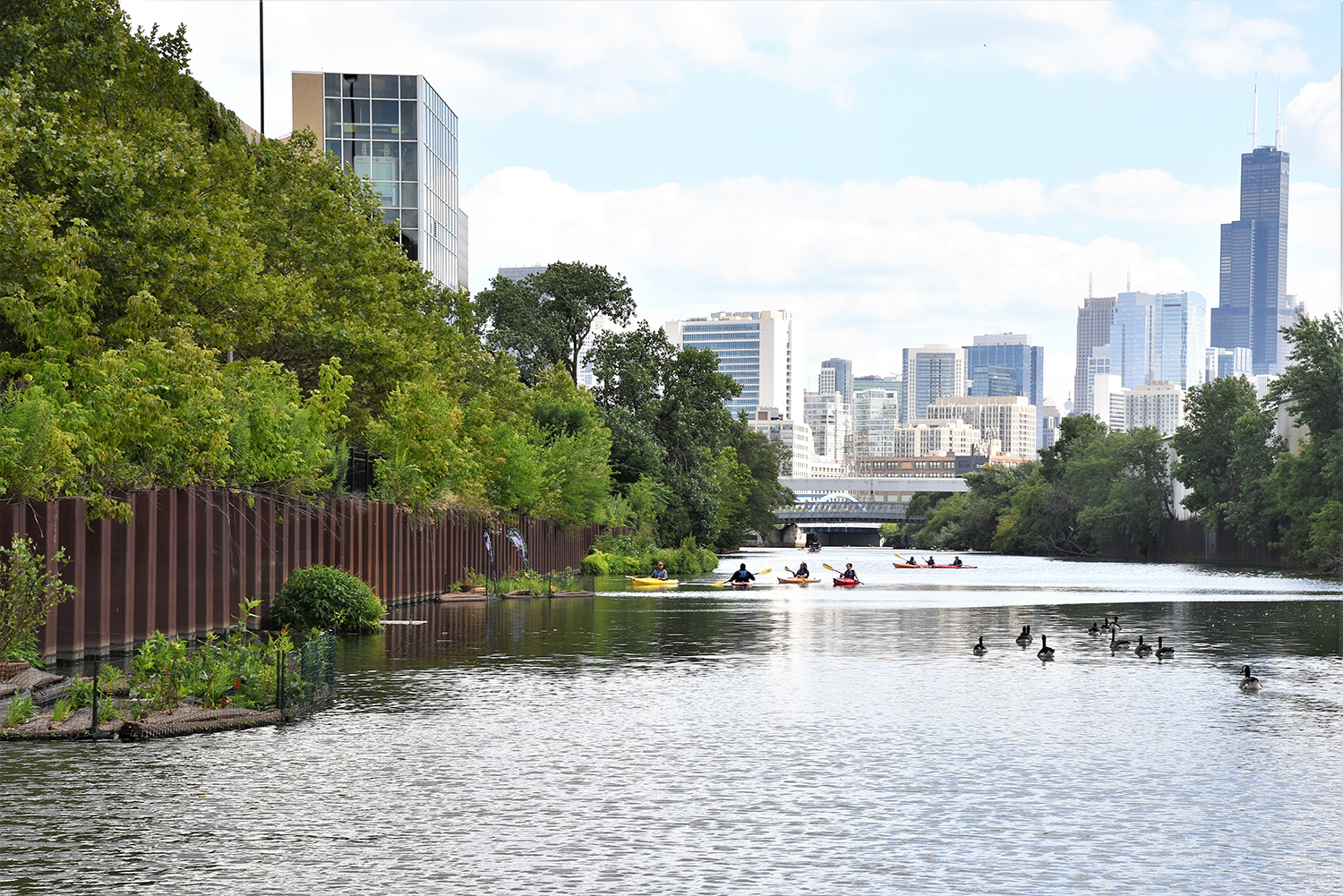
Over the past few decades, Chicago city stakeholders have worked to transform the 156-mile-long river into a major tourist attraction.
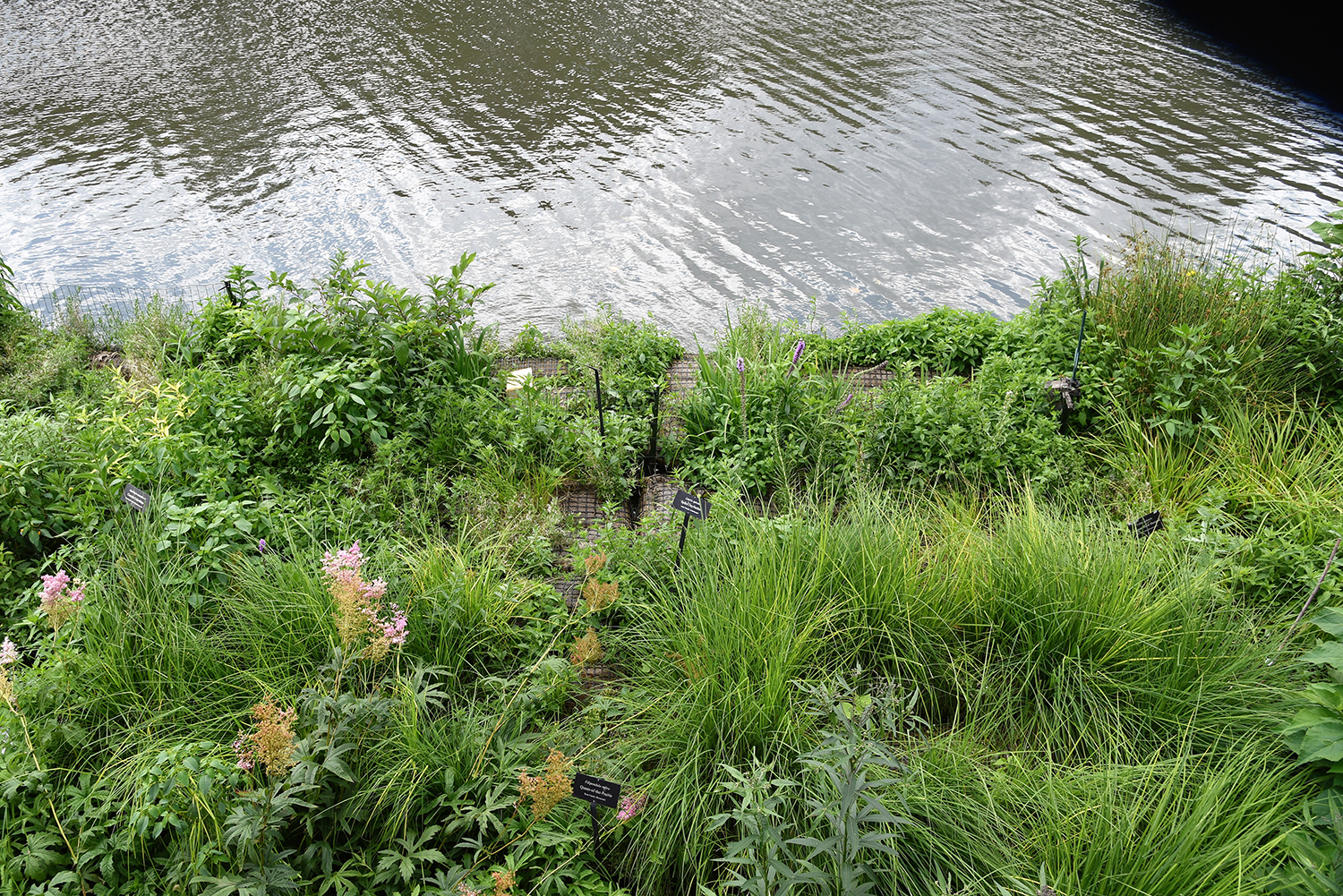
In June 2017, Urban Rivers completed the first phase of its Wild Mile project by installing 2,500 square feet of floating gardens. By 2020, the Wild Mile will contain floating gardens, forests, wetlands, public walkways and kayak access points.
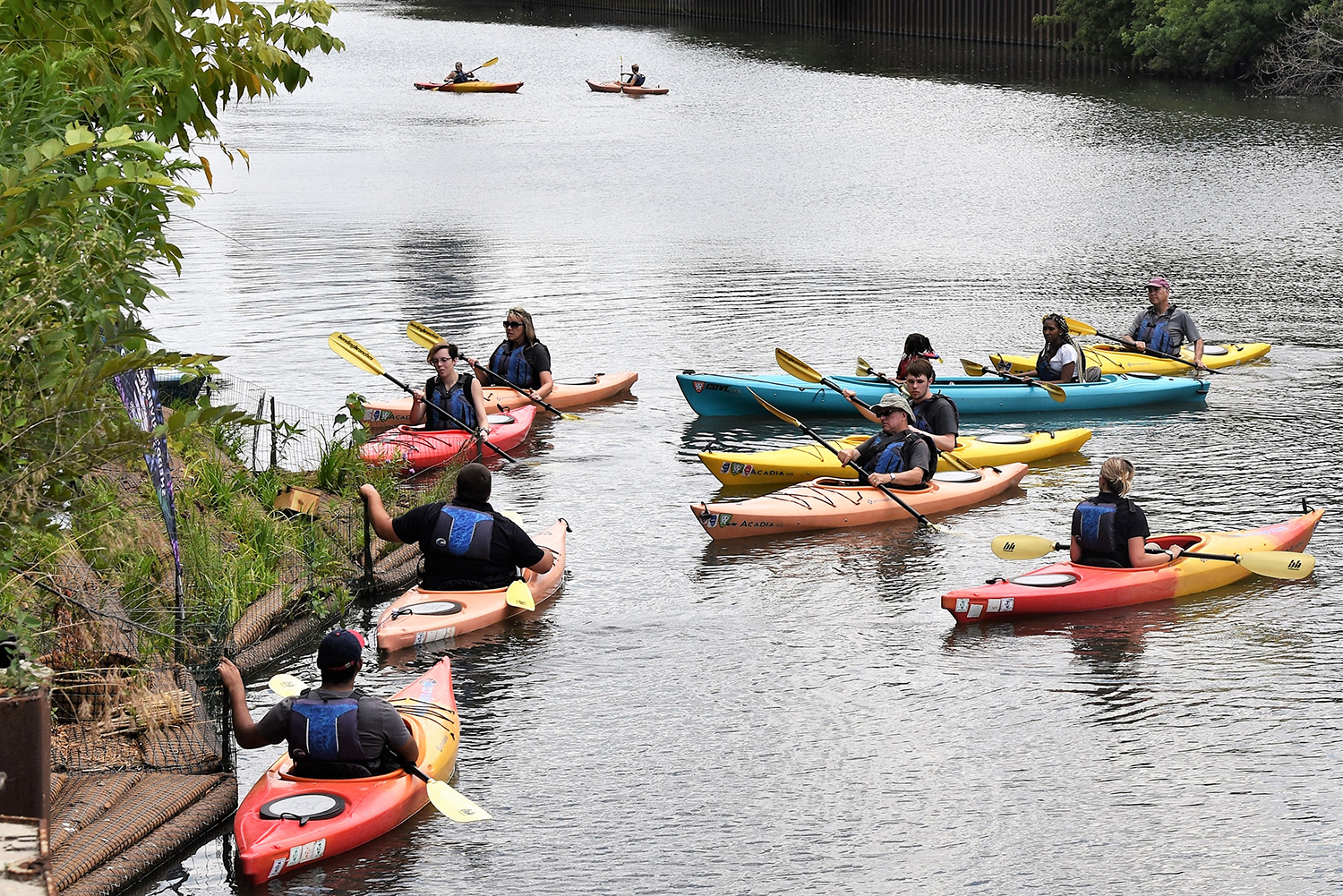
As part of its Wild Mile project, Urban Rivers partners with organizations like the Shedd Aquarium, which leads a Kayak for Conservation program for community members to explore the river's ecosystem.
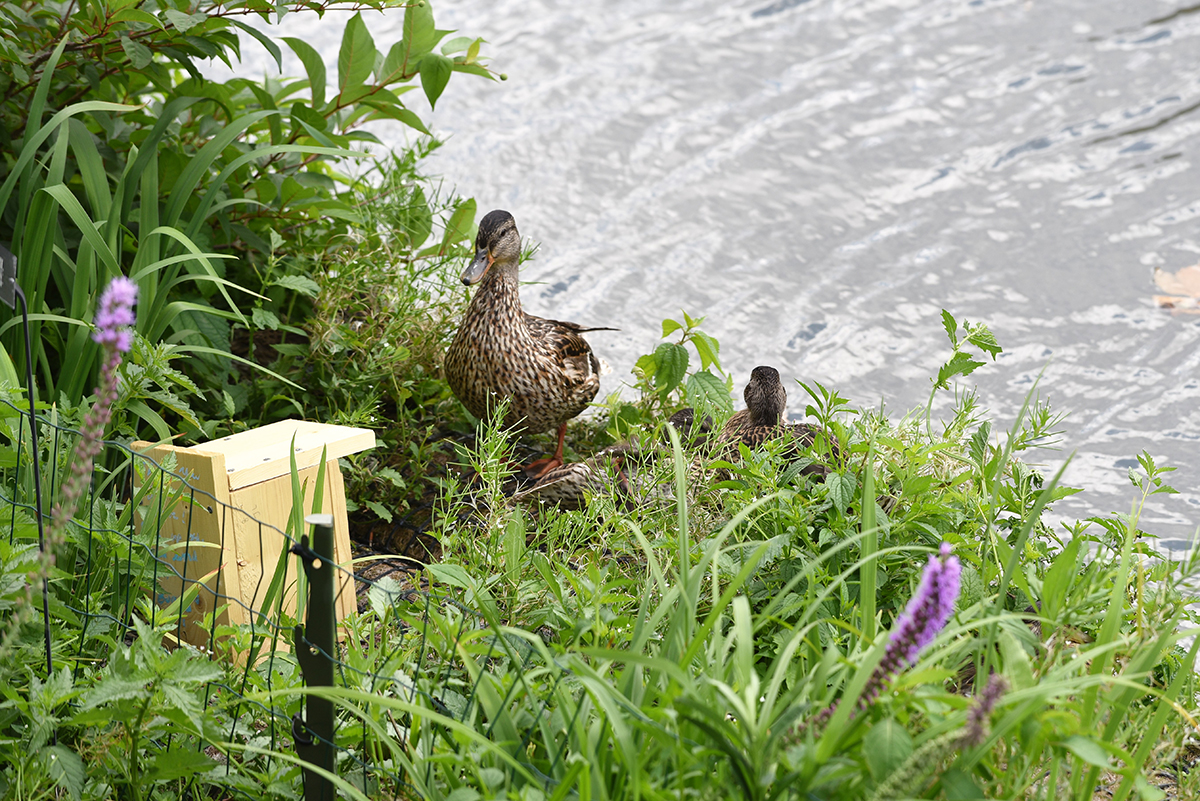
The floating gardens contain native plants, such as swamp rose and queen of the prairie, improving the river’s water quality and providing habitats for animals to rest, hunt and live.
Standing on the bank of the Chicago River behind the Whole Foods on Kingsbury Street in Chicago’s Lincoln Park neighborhood, George Brigandi (MBA ‘18) passionately explains how 2,500 square feet of floating gardens will improve the ecosystem of the city’s iconic waterway. Over the past few decades, the city’s stakeholders have worked to transform the 156-mile-long river into a major tourist attraction.
That transformation is a major focus for Urban Rivers, a nonprofit organization where Brigandi serves as marketing director. By 2020, Urban Rivers hopes to have completed the Wild Mile, the first-ever mile-long floating eco-park in the world.
“We’re improving water quality, biodiversity and we’re also making this strip of river more aesthetically appealing to Chicagoans and tourists alike,” Brigandi says.
By 2020, the Wild Mile will contain floating gardens, forests, wetlands, public walkways and kayak access points. The first phase of the project included the floating gardens, which sit on four-by-eight sections made out of coconut husk, stainless steel and other materials that help the structure stay afloat. The floating gardens contain native plants, such as swamp rose and queen of the prairie, improving the river’s water quality and providing habitats for animals to rest, hunt and live.
Brigandi also hopes the project will benefit surrounding businesses and retailers, such as Whole Foods. “We’re making this area better from a community, economic and environmental standpoint,” he says. “We want all Chicagoans to appreciate and benefit from this piece of infrastructure we’re putting in. Partners, like the Shedd Aquarium and Near North Unity, are developing city-wide community programming with us to ensure that happens.”
In June 2018, Brigandi graduated from the Kellstadt Graduate School of Business with an MBA in entrepreneurship and sustainable management. After working in marketing and business development for several years, Brigandi discovered corporate sustainability, and was inspired to pursue a career that furthered socially and environmentally conscious business efforts.
“Most of what I’ve learned about social enterprise, as well as many of the professional skills I’m utilizing at Urban Rivers, I learned during my time at Kellstadt,” he says.
True to DePaul’s Vincentian values, Brigandi also says he learned how to be more socially and environmentally responsible in his everyday life by focusing on the long-term impact of his actions and how they affect his community and planet. “Too many people and businesses have traditionally focused on short-term gains, but now you’re starting to see an overall shift in the general mindset of corporate and private America to focus more on the long-term, which is a good sign for our future,” he says.
Learn more about the DePaul MBA